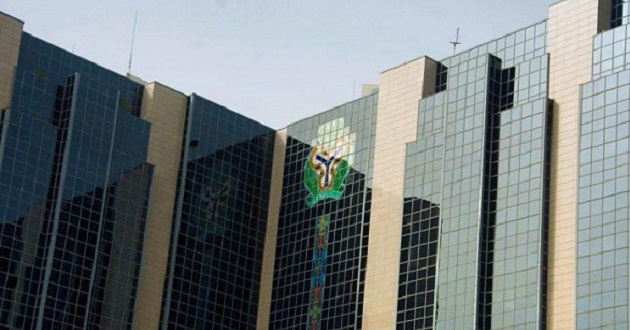Business
Consumer borrowing to fall this year —CBN

The rate at which the consuming public borrows money to meet domestic needs and other personal financial obligations may take a plunge this year, a recent survey by the Central Bank of Nigeria (CBN) has shown.
Titled Consumer Expectations Survey Report Q4 2019, the publication posted on the website of the apex bank on Thursday, details a couple of socio-economic considerations as factors to govern the projected shift in consumer behaviour this year. Principal among these is inflation, envisaged to be triggered by rise in the costs of food, household needs, purchase of appliances/consumer durables, house purchase, savings, education and purchase of car.
Even though the CBN publication concludes that “the consumer outlooks for the next quarter (Q1 2020) and next 12 months (2020) were positive,” this optimism should be taken as a cautious one given that public pulse, as reflected in another part of the document, suggests that consumer spending will plunge in 2020 in response to consumers’ shrinking appetite for borrowing.
“Majority of consumers believe that the next 12 months would not be an ideal time to purchase big-ticket items like motor vehicles and house.
“Most respondents expected the naira to remain unchanged; inflation rate to rise, and borrowing rate to fall in the next 12 months,” it reads.
The outlook for consumer borrowing this year is a negative one as the report puts borrowing rate index at -6.3 points. Nevertheless, Naira is envisaged to appreciate this year on the back of a positive exchange rates outlook of 16.5 points.
The survey observes that consumers’ overall confidence improved last quarter judging from optimism in consumers’ outlook for Q4 2019. Respondents based their decision on improvement in family income and financial situation.
Read also: Local refineries produce less than 1% of petrol consumed in Nigeria
It puts the consumer outlooks for this quarter and 2020 at 19.7 points and 30.2 points in that order. The survey pieces together considerations ranging from projected increase in net household income and “expectations to save a bit and/or have plenty over savings” to anticipated improvement in Nigeria’s economic conditions this year in arriving at its positive outlook for this quarter and this year.
Respondents envisioned that the costs of goods and services will soar this year with an index of 17.0 points.
The overall buying conditions index for big-ticket items in Q4 2020 stood at 29.7 points. Put differently, many consumers felt that last quarter was not the right time to buy “big-ticket items like consumer durables, motor vehicles and house and lot.”
The buying intention indices for consumer durables, house and lot, and motor vehicles for last quarter stood below 50 points, meaning that respondents did not have plans to buy these possessions in the next one year.
Join the conversation
Support Ripples Nigeria, hold up solutions journalism
Balanced, fearless journalism driven by data comes at huge financial costs.
As a media platform, we hold leadership accountable and will not trade the right to press freedom and free speech for a piece of cake.
If you like what we do, and are ready to uphold solutions journalism, kindly donate to the Ripples Nigeria cause.
Your support would help to ensure that citizens and institutions continue to have free access to credible and reliable information for societal development.
























